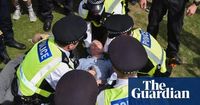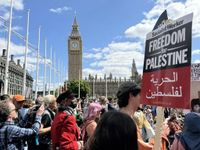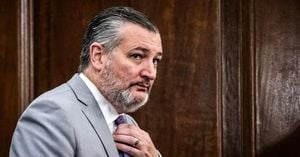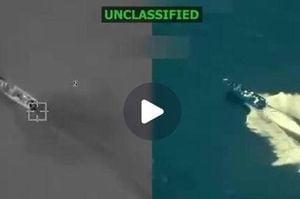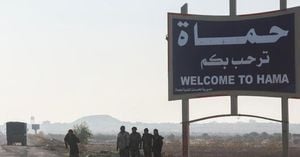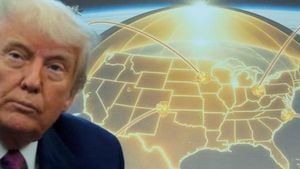Last weekend, London witnessed one of its largest mass arrests in a decade, as more than 500 demonstrators—many of them over 60—were detained by the Metropolitan Police for publicly supporting the recently banned group Palestine Action. The arrests, which took place around August 9-10, 2025, have ignited fierce debate over the boundaries of protest, the definition of terrorism, and the future of free speech in the United Kingdom.
Palestine Action, a direct action group known for targeting arms manufacturers and military infrastructure in protest of British arms sales to Israel, was proscribed by Home Secretary Yvette Cooper in July 2025. The ban, which made membership or public support for the group a criminal offense under Section 13 of the Terrorism Act 2000, followed a series of high-profile actions—including the spraying of jets at RAF Brize Norton with red paint. According to the BBC, Cooper defended the decision, stating, "This is not a non-violent organisation," and emphasizing that the move was based on "clear security assessments." She added, "There may be people who are objecting to proscription who don't know the full nature of this organisation, because of court restrictions on reporting while serious prosecutions are under way. But it's really important that no-one is in any doubt that this is not a non-violent organisation."
The legal and political fallout was swift. Most of those arrested were released on bail, with the exception of a handful who refused to provide police with their details. At least ten have been formally charged, and a trial for three supporters is scheduled for September. According to The Guardian, the Metropolitan Police described the operation as the largest number of arrests made on a single day in the past ten years.
The arrests sparked immediate concern among human rights advocates and civil liberties groups. Organizations such as Greenpeace, Human Rights Watch, Friends of the Earth, Global Witness, and the Quakers sent a joint letter to Lord Hermer, the attorney general for England and Wales, urging a suspension of prosecutions pending the outcome of a judicial review into the legality of the ban. The letter, reported by The Guardian, stated, "Prosecuting individuals for offences connected to that proscription before the court has determined its legality raises significant legal and moral questions. In particular, one of the grounds which the judge held had merit was that the proscription of Palestine Action was a disproportionate interference with human rights."
Greenpeace UK co-executive director Areeba Hamid put it bluntly: "Hundreds of people are facing potential prison sentences for sitting quietly holding placards. It isn’t difficult to see why this could be a disproportionate restriction on people’s freedom of expression, and why so many legal experts have expressed their concern at the government’s decision to extend their definition of terrorism in this way. We urge the attorney general to approach the matter with care and some caution, and not prejudge the outcome of a judicial review which could fundamentally change the legal position of these protesters."
The judicial review, granted by High Court judge Mr Justice Chamberlain, is set for November. Chamberlain stated that it was "reasonably arguable" that the proscription order amounted to a disproportionate interference with Articles 10 and 11 of the European Convention on Human Rights, which guarantee free speech and peaceful assembly. If the court finds the ban unlawful, it could quash the order, potentially leading to the dropping of charges against those not yet convicted. However, the legal outcome for those already convicted remains uncertain, as a quashing order could either be retroactive or only apply from the date of the decision.
The controversy has also drawn the attention of the Liberal Democrats, who have called for a review of the terrorism law itself. Party spokesperson Lisa Smart wrote to the independent reviewer of terrorism legislation, Jonathan Hall KC, expressing "deep concern about the use of terrorism powers against peaceful protesters in this context." While acknowledging the "serious nature of this group's activities," Smart warned, "using the Terrorism Act to arrest individuals exercising their right to peaceful protest this weekend sets a troubling precedent and risks having a chilling effect on both free speech and legitimate democratic dissent." She urged Hall to "consider whether the legislation requires amendment to prevent misuse in future."
The breadth of the UK’s terrorism laws has come under intense scrutiny. The current definition under the Terrorism Act 2000 includes not only violence but also serious property damage for political or ideological causes. As noted in The Conversation, this means that Palestine Action’s activities—targeting property to influence government or intimidate arms manufacturers—fit the legal definition of terrorism, even if they do not directly threaten public safety. The law does not require proof that anyone was actually made fearful or terrorized, a lower bar than in many other countries. Ireland, for instance, requires "serious intimidation," while Germany generally manages without such sweeping terrorism statutes.
MI5’s advice to the Home Secretary, presented to the court in July, acknowledged the novelty of proscribing a group that did not use or advocate violence to achieve its political ends. This extension of counter-terrorism law to direct action protest groups marks a significant shift in the UK’s approach, raising alarms among legal scholars and civil liberties advocates. As law professor Geoff Pearson observed, "the longer the laws are in force and police continue to enforce them to the degree witnessed last weekend, the more police legitimacy will be called into question."
Policing discretion is another flashpoint. While Section 13 of the Terrorism Act creates an offense for public support of a proscribed group, it does not mandate arrest. Officers are expected to weigh the free speech rights of protesters against national security concerns. In Northern Ireland, for example, police do not routinely arrest individuals displaying support for long-proscribed groups like the UVF or IRA. The heavy-handed approach in London has fueled accusations of political motivation and partiality.
The Equality and Human Rights Commission has also weighed in, with chair Baroness Kishwer Falkner writing to both the Home Secretary and Met Police chief Mark Rowley. She expressed concern that recent policing responses "may not strike the right balance between security and fundamental rights," warning that "heavy-handed policing or blanket approaches risk creating a chilling effect, deterring citizens from exercising their fundamental rights to freedom of expression and assembly through fear of possible consequences."
For many of those arrested, the immediate impact was the loss of their right to protest, even if only temporarily. As The Conversation highlighted, "Being released after 24 hours does not remedy the fact you were removed from your protest site. An effective right of protest is about not just the law, but the reality on the ground."
With a pivotal High Court hearing looming in November and mounting pressure from across the political spectrum, the UK faces a defining moment in the debate over protest, free speech, and the limits of anti-terrorism legislation. The outcome will shape not only the fate of those arrested, but also the future of dissent in British democracy.

